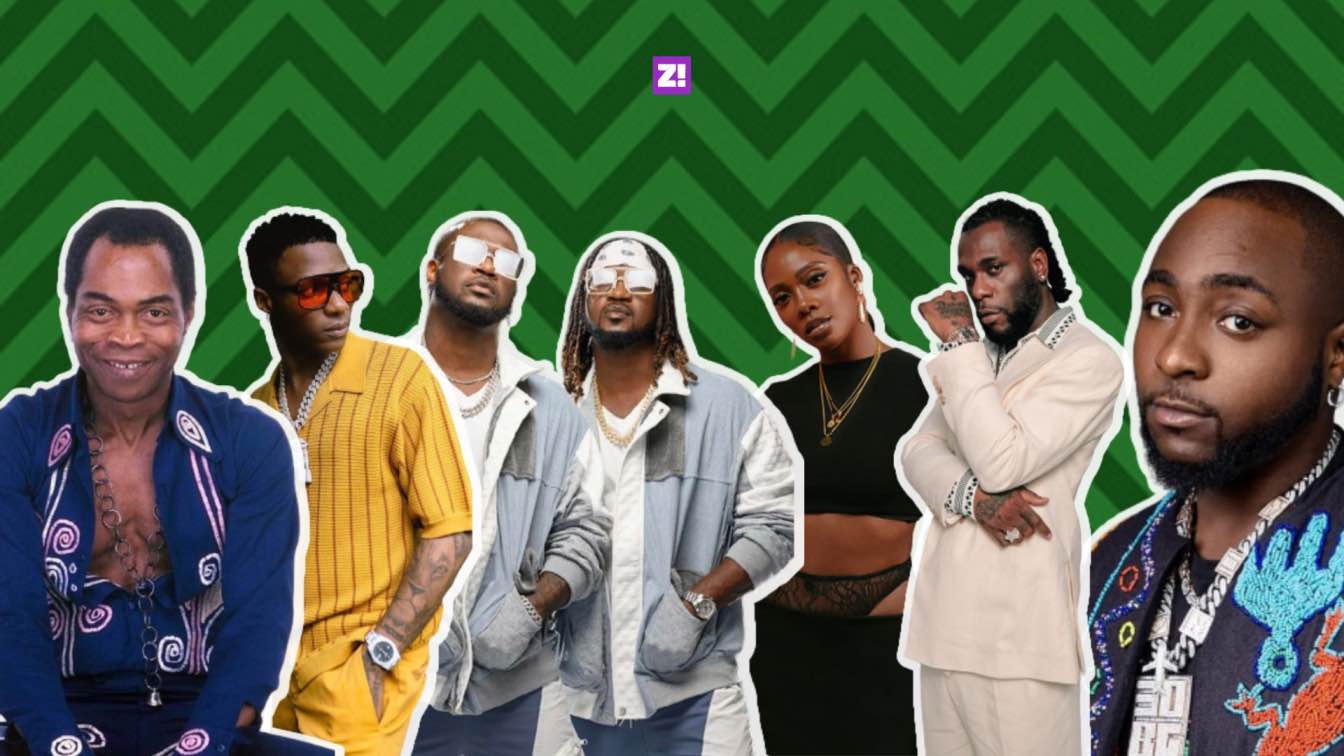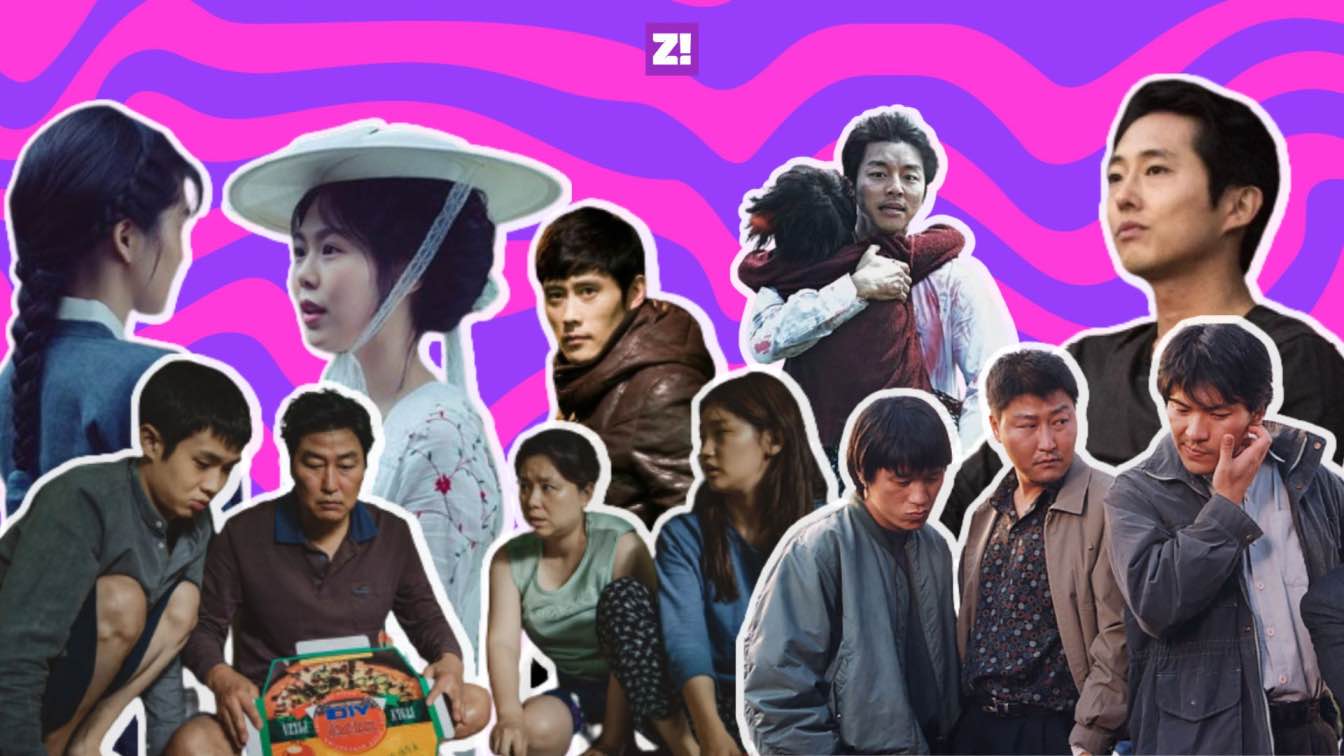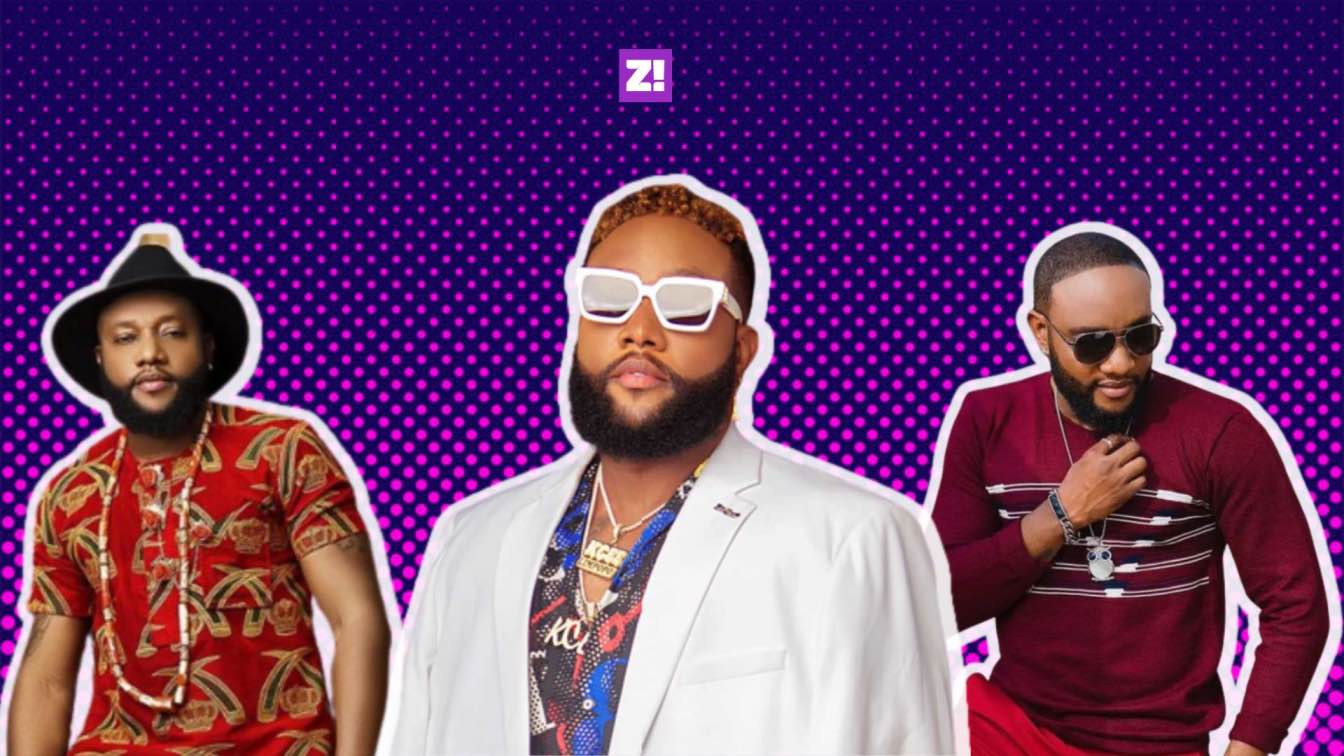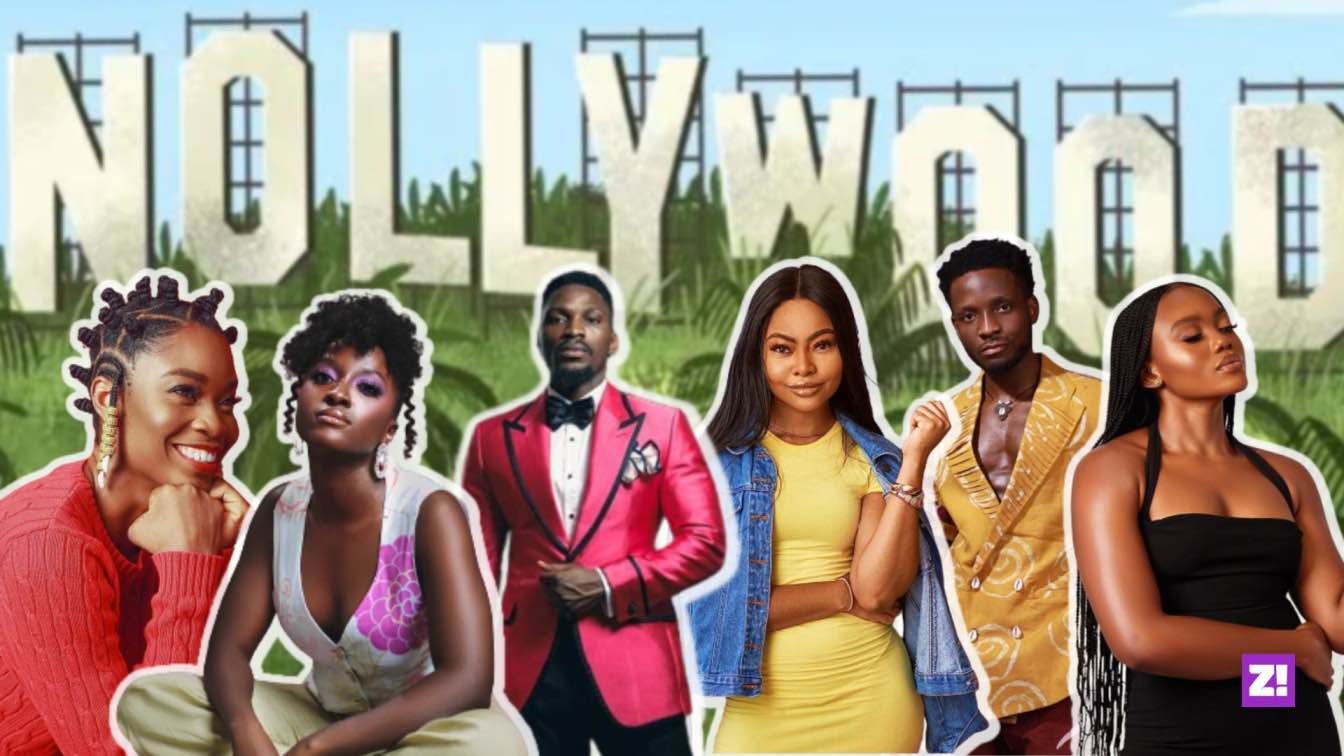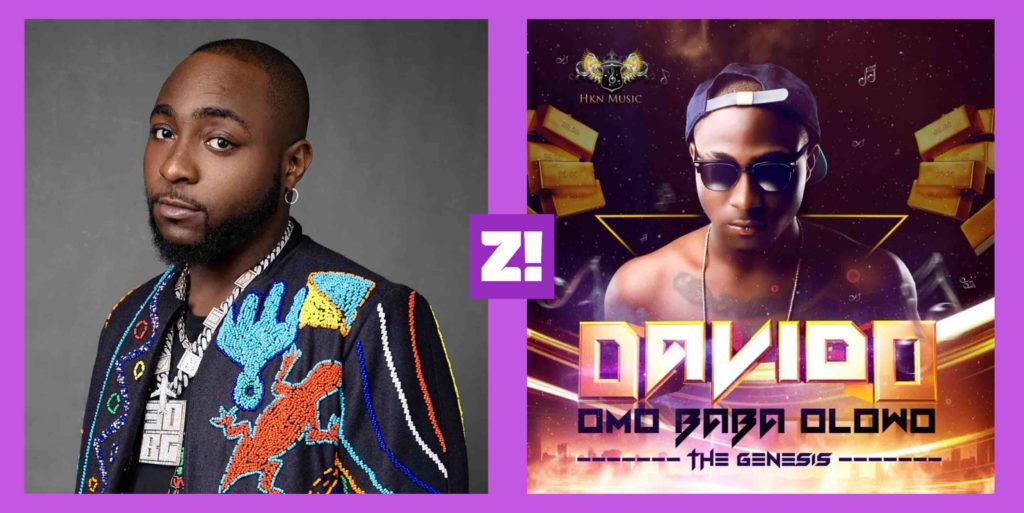
Davido is an indisputable force when it comes to Nigerian music today. Since making a major splash in 2011 with the explosive Naeto C-assisted hit, Back When, he has cemented himself as a universal leader of new school Afrobeats, paving the way for a new generation, all while churning out back-to-back hits.
His last album, the 2020 closer, A Better Time, was responsible for the protest anthem, Fem, club bangers like The Best with Mayourkun and La La with Ckay, and international collaborations with Nas, Nicki Minaj and Lil Baby. His guest features have also made songs like Adekunle Gold’s High and Young Jonn’s Dada bigger hits than they would’ve been without him.
With over ten years in the game and multiple hits to his name, it’s still shocking that Davido has released only three albums: 2012’s Omo Baba Olowo: The Genesis; 2019’s A Good Time; and A Better Time. But to be fair, it’s not that shocking, because Nigerian artists avoid albums like a biblical plague.
Following the massive success of Wizkid’s 2011 debut album, Superstar, 2012 was immediately set aside as the year for another hotly anticipated debut, this time, Davido’s. The anticipation was warranted, though. At the time, Davido had already put out Back When, taken over clubs with Dami Duro and killed his guest feature on Saucekid’s Carolina.
Playing into the image the public had given him (and, to be fair, his reality), Davido named his 17-track debut album, Omo Baba Olowo: The Genesis, which means, “The child of a wealthy father.” But fans were less than thrilled with this mid body of work when the album eventually dropped.
RECOMMENDED: Which Nigerian Music Producer-Turned-Singer Surprised You the Most?
To mark the album’s 10th anniversary this week, I’ve decided to revisit Davido’s musical firstborn to figure out what worked, what flopped and how it foretold the type of musician Davido is today.
The Breakdown
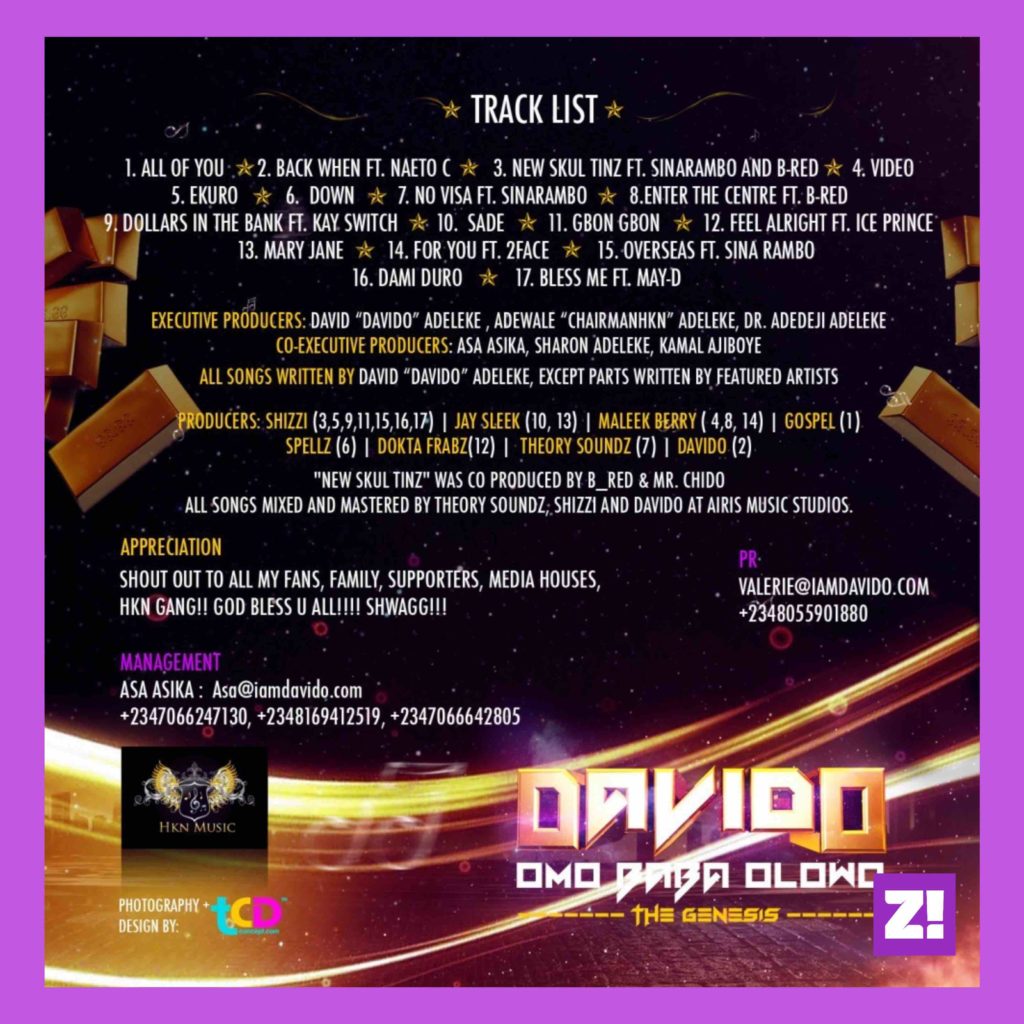
If there’s one thing we know now, Davido is not one to back down from a fight or downplay his worth. The opening track and one of the album’s best songs, All Of You, finds him with the biggest shoulder pads you can find, singing about how he’s the best in the game. A bold statement for a 19-year-old dropping his first album.
For an album about being born into wealth, lyrics like “Back when I was broke yo” sound pretentious AF when Davido sings them on Back When. This doesn’t mean the song doesn’t slap, though, because it does. The first sign of a crack in the album comes up on New Skul Tinz with B-Red and Sina Rambo. Here, we find Davido and his crew trying and failing woefully to convince us they’re the next big thing.
The next five songs — except for Ekuro — Video, Down, No Visa with Sina Rambo and Enter The Centre with B-Red, can only be described as noise with a sprinkle of Davido’s vocals (if we can call it that). These roughly-produced songs drown out his voice and show one of his biggest flaws at the time, weak songwriting.
Ekuro is, however, a big moment for Davido to shine as he holds his own, singing about love — the song lowkey feels like the less than perfect older sibling to songs like Jowo, 1 Milli and Assurance.
With Davido currently standing as one of the kings of features, it’s surprising to see his album had five features from outside his label: Back When with Naeto C, Dollars In The Bank with Kay Switch, Feel Alright with Ice Prince, For You with 2Baba and Bless Me with May D. Feel Alright, Back When and Bless Me are tolerable, Dollars In The Bank fall flat because of its weak production, while For You fails to hit the mark for a song that has Davido and 2Baba.
Davido tries to hit high notes on Sade, but there’s only so much autotune can do. Thankfully, his vocals on songs like Stand Strong work as evidence that in this life, you have to try and try until you succeed. The album is rounded up with the twerk anthem Gbon Gbon, where Davido exchanges actual lyrics for an unknown language (or maybe it’s just gibberish).
Final Thoughts
Debut albums are either the best or worst projects on an artist’s discography. Thankfully, for Davido, it’s the latter. Omo Baba Olowo: The Genesis was wild back then, and going back ten years later doesn’t make it any better. One thing it does, though, is show us just how much Davido has grown as an artist and collaborator. A feat not many of his colleagues can boast of.
To get the hit-making Davido we have today, we needed to experience the cringe Davido we had on this album. I’m grateful for that because it’s all about the journey in the end, and Davido’s has been nothing short of remarkable.
ALSO READ: Want to Feel Old? These Nigerian Albums Are Turning 10 in 2022

